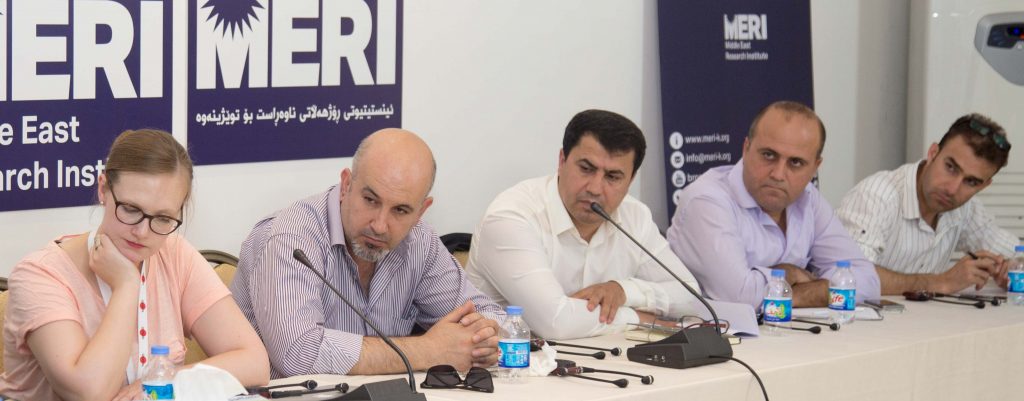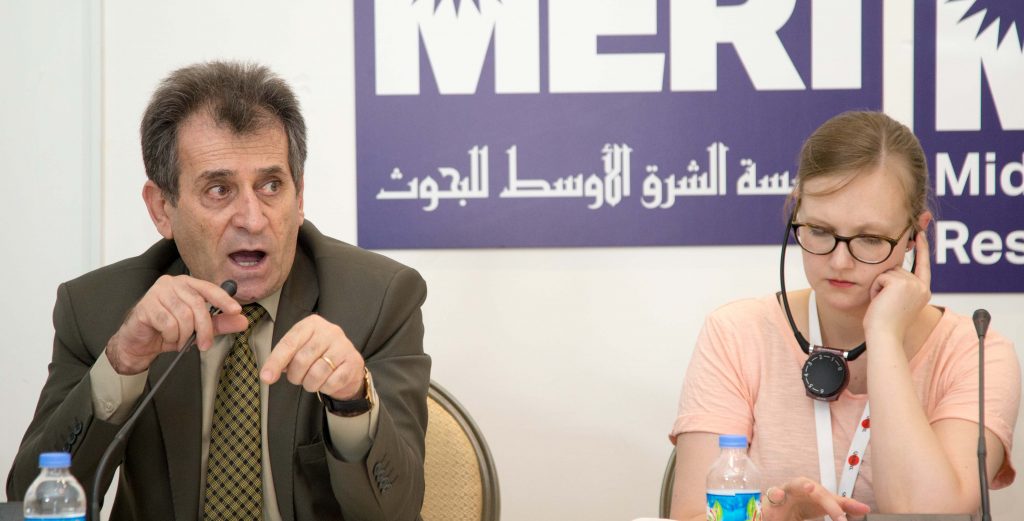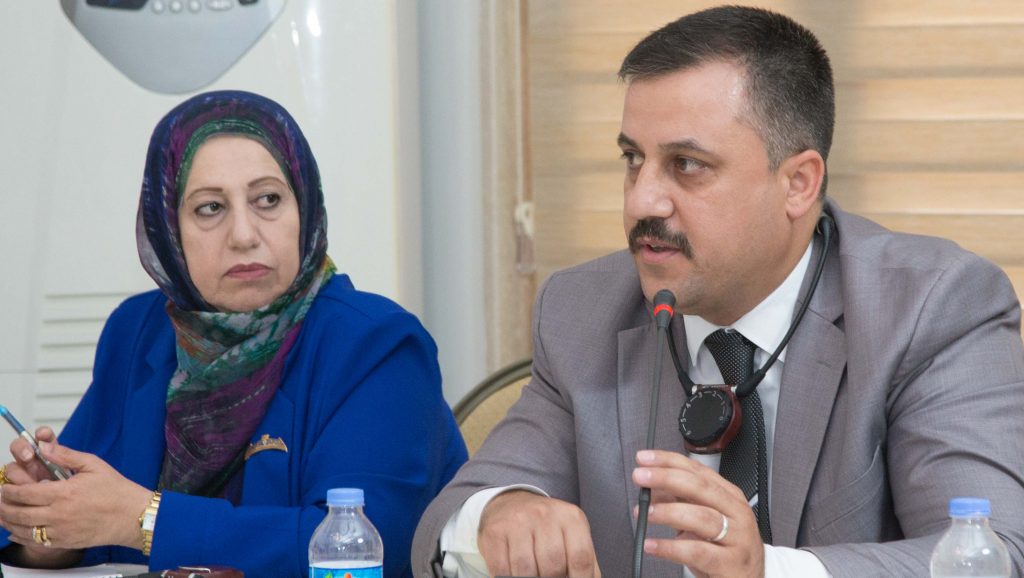“The return process will not be successful if we do not take the issue of justice into consideration.”
Social justice should be the overarching principle guiding the process of the return of millions of Iraqi IDPs. Yet, there are many more aspects that need to be addressed. Some of them have been highlighted by key stakeholders (local and national actors, international organisations, and NGOs) in a workshop on displacement and migration held at MERI on the 23rd July 2017. The workshop was part of a larger research project that MERI is carrying out in collaboration with the Joint Crisis Coordination Centre (JCC), the lead KRI’s institution for coordination of humanitarian crisis and Qandil, a not-for-profit, non-governmental, non-political, and non-religious humanitarian aid organization, funded by the Netherlands Organisation for Research.
The context is the Kurdistan Region of Iraq, which has witnessed many different movements of people in recent years: internal displacement, particularly from 2014 onwards, refugee flows, migration towards other countries and now the process of return. Within this diverse migration environment, what is the relationship between internal displacement and migration outside Iraq? Based on the data collected, around 63% of respondents expressed the wish or the plan to leave the country after the displacement phase. What, then, are the factors that weigh the most in influencing such a decision?
Security is one of them. While participants attribute an economic dimension to their perception of insecurity (i.e., lack of job opportunities or insufficient economic means), it is still largely interpreted in a traditional way: a general feeling of uncertainty, especially among minority groups, and a concern for a increasingly militarized society, with the presence of different armed groups often preventing or halting the process of return of internally displaced people. Who should provide security in the liberated areas remains an open question. There is a political dimension as well, which prevails in the areas of origin that are contested between Baghdad and Erbil.
The process of return can be interpreted as diametrically opposite to the decision of leaving the country. Investigating obstacles to return can reveal many of the concerns of IDPs. Although the decision to stay or to return is made at the family level, as one participant in the workshop highlighted, there are still many macro dynamics that influence such decisions. According to a preliminary analysis of our data, identity groups express very different views on the issue of migration and return depending on their position in society, as well as in the political landscape of the country.
As a fundamental responsibility of national governments, displacement and the consequent process of return present many challenges. In Iraq, they are exacerbated by, on the one hand, the brutality of the Islamic State and the victims’ quest for justice (and often revenge), and on the other hand, by the unclear distribution of responsibilities between government entities, as well as between local, regional, and national bodies. A shared policy dealing with the return of IDPs is yet to be formulated, despite the country having witnessed so far the return of around 2 million IDPs (IOM-dtm Data as of 15 June 2017). Land and property issues, security provisions, legal aspects of the return process, as well as the provision of education are only a few of the issues that were discussed during the workshop.
Aimed at better identifying potential areas of intervention for donor countries and framing more accurate policy recommendations, the workshop provided a wealth of inputs to complement the findings of our research. In the coming month, MERI will release a report illustrating the relationship between displacement, migration and return, informed by data collected through a survey questionnaire and qualitative interviews. Beyond the humanitarian concern, the future of the displaced people of Iraq is the first of the many political challenges that the country cannot lose.
* * * * *
About MERI: The Middle East Research Institute is Iraq’s leading policy-research institute and think tank. It is an independent, entirely grant-funded not-for-profit organisation, based in Erbil, Kurdistan Region. Its mission is to contribute to the process of nation-building, state-building and democratisation via engagement, research, analysis and policy debates.
MERI’s main objectives include promoting and developing human rights, good governance, the rule of law and social and economic prosperity. MERI conduct high impact, high quality research (including purpose-based field work) and has published extensively in areas of: human rights, government reform, international politics, national security, ISIS, refugees, IDPs, minority rights (Christians, Yezidis, Turkmen, Shabaks, Sabi mandeans), Baghdad-Erbil relations, Hashd Al-Shabi, Peshmarga, violence against women, civil society. MERI engages policy- and decision-makers, the civil society and general public via publication, focused group discussions and conferences (MERI Forum).




